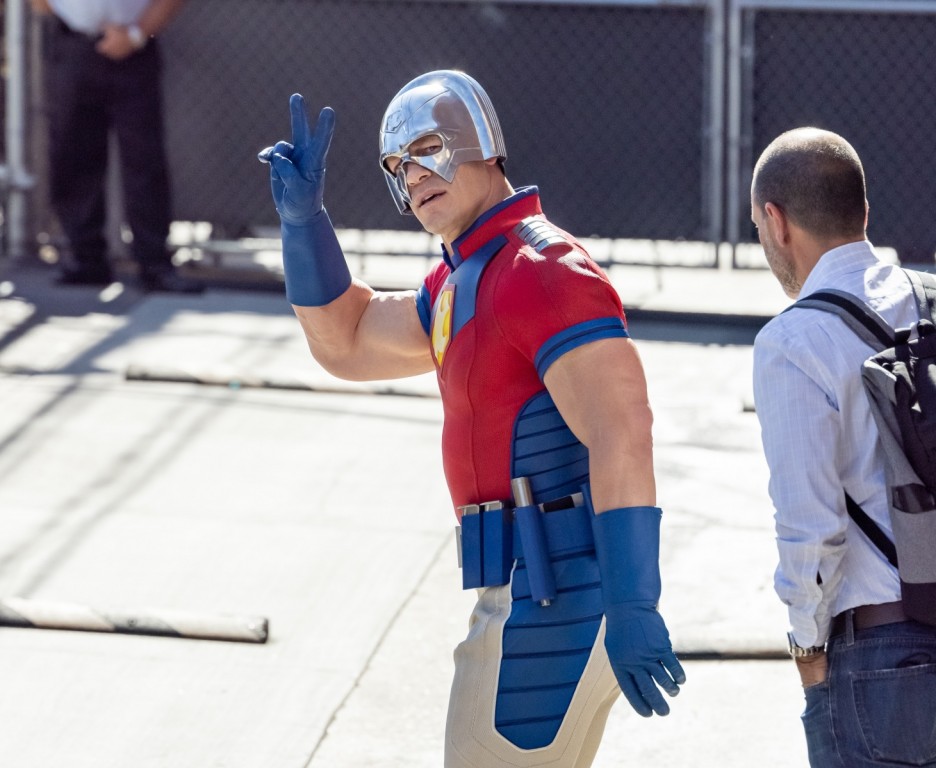John Cena's 'Peacemaker' Is "A Sexual Omnivore." James Gunn Explains The Evolution Of The Character's Sexuality.

There's no doubt that entertainment has become a more progressive realm for storytelling in the past few years, opening the door for cultures and lifestyles once excluded from mass-marketed film and television projects to be represented in a big way. One of the more recent examples of societal acceptance in a genre normally not as forthcoming with positive representation of LGBTQ has been in comic book properties. HBO's Peacemaker starring John Cena as a run and gun ex-con mercenary eluded to the character's personal life in a most interesting way.
Writer/Director James Gunn, who introduced the DC character in his last film The Suicide Squad, spinning him off into a hit show on HBO Max, discussed the evolution of Peacemaker in an interview with Total Film.
"It was me and John talking about who he is. Peacemaker is a hypersexual guy and that has led him to be a sexual omnivore in a lot of ways."
Gunn goes on to talk about the character of Leota Adebayo played by Danielle Brooks who is the one outwardly homosexual character and how her dynamic with Christopher Smith aka Peacemaker plays as a juxtaposition to his sexuality.
"I think it's interesting because Adebayo is so traditionally liberal in so many ways, but sexually Adebayo is incredibly conservative. I mean, she's married to one woman. They have a monogamous lifestyle. And Peacemaker sexually is incredibly liberal. He's a hedonist. That it's just who the guy is."
In another interview with /Film, Gunn expands on this notion,
"She (Danielle Brooks' Leota Adebayo)is his polar opposite in so many ways, politically. She's a Black, gay woman. He's a white, straight - nah, he's not straight - white, whatever-he-is male. And yet they really like each other. They have a lot in common. [...] Peacemaker is an interesting character because he's so f-cked-up in so many ways, and then in other ways, he is kind of weirdly forward-thinking. John does improv all the time, and he just turned Christopher Smith into this hyper-sexualized dude that is open to anything sexually. I was surprised by that. But I thought, 'I guess it makes sense that this guy isn't one-dimensional.'"
It is elating to see creators getting real about how they treat their characters, giving them believable personality traits, while not kowtowing to the ignorance of a few who have not progressed past their overly traditional hang-ups. Treating these character traits as "normal" is the best way to move forward as a society because that's exactly what they are... normal. Representation is important and here's to seeing more of this in the future.
© 2026 Enstarz.com All rights reserved. Do not reproduce without permission.






